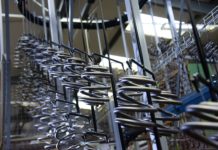Long-term sickness absence is still an ongoing issue, according to a major study of the manufacturing industry released by EEF, the manufacturers’ organisation.
The EEF/Unum 2009 Sickness Absence Survey shows that, despite overall sickness absence decreasing, 36% of employers report an increase in long-term absence from 2007 to 2008.
The survey results identify ‘surgery or medical investigation or tests’ as the cause of almost 60% of all long-term absences, ahead of back problems (34%), cancer (26%) and stress (25%). And this category continues to worsen, with the number of employers citing the cause increasing by 6% over the last 12 months and 14% since 2005. In addition, of those employers who have seen an increase, 28% report that ‘waiting for appointment or diagnosis of illness’ is a barrier on the pathway to return to work and 25% cite ‘waiting for treatments or operations’.
Commenting, Professor Sayeed Khan, EEF Chief Medical Adviser said: “The overall fall in sickness absence figures conceals a worrying trend – an ongoing issue with long-term absence. Employers can do a lot to address this through better management, but employers would benefit from faster access to NHS treatments and secondary care in order to have a chance of significantly improving absence levels.
The research shows that 45% of companies say that they are dissatisfied with the current sick note system, with only 28% satisfied.
Commenting, Professor Michael O’Donnell, Chief Medical Officer at Unum added: “The proposed ‘fit for work’ initiative should help the NHS follow the recently launched NICE (National Institute for Health and Clinical Excellence) guidance on long-term sickness absence and incapacity. There is still a need for early intervention in the working population to prevent job loss and long-term absence from work”
The EEF/Unum survey revealed other findings, including:
• Back pain remains the second most quoted cause of both short-term and long-
term absence
• The cost of barriers to rehabilitation in the manufacturing industry has
fallen by more than £100m a year to £508m (down from £610m in 2008)
• 3 million fewer days are being lost in Manufacturing due to sickness
absence now than in 2005
• Overall sickness absence in the industry now stands at 6.2 days per
employee each year, down from 6.8 days per employee in 2007.








